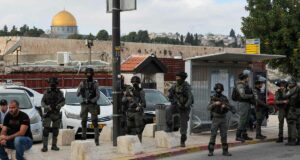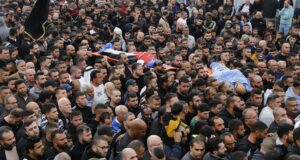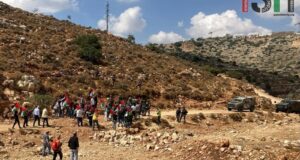Popular Struggle Coordination Committee
12 March 2010

Tristan Anderson
Mistaken identity: There were several Border Police squads in Nili’in at the time of Tristan’s injury, but only one of them was interviewed by investigators. A thorough examination of the facts shows that the squad interviewed was the wrong one.
No field visit: The investigation team did not visit the scene of the incident or nearby viewpoints from which it would have been possible to understand distances and positions described by eyewitnesses to the incident.
On the day of Tristan’s injury, there were several police squads in Nili’in – one stationed at a position known as “Antenna Hill” and another positioned closer to the village center. Since the squad stationed at Antenna Hill reported injuring a person, this squad was questioned regarding Tristan Anderson. However, it is now clear that there was more than one injury on March 13, 2009 – with one such injury having been reported by the squad stationed on Antenna Hill. These police officers report having hit a person in a completely different location and with an entirely different description than that of Tristan. For example, the police officers reported hitting a stone thrower whose face was covered, whereas several eyewitnesses attest to the fact that Tristan’s face was not covered at all on that day and that he did not throw stones. Furthermore, eyewitnesses to Tristan’s injury report that the tear gas canister came from a different direction than Antenna Hill, the same area in which the second squad was stationed. It is clear that these mistakes stem from the fact that investigators never visited the scene of the incident.
Attorney Michael Sfard: The astonishing negligence of this investigation and of the prosecutorial team that monitored its outcome is unacceptable, but it epitomizes Israel’s culture of impunity. Tristan’s case is actually not rare; it represents hundreds of other cases of Palestinian victims whose investigations have also failed.
One year after his shooting, Anderson is still hospitalized in Tel Hashomer hospital, with severe permanent brain damage of a yet uncertain degree. The severity of his condition still does not allow his transfer back home to the US.
To view a summary of the appeal in English, click here
 International Solidarity Movement Nonviolence. Justice. Freedom.
International Solidarity Movement Nonviolence. Justice. Freedom.


